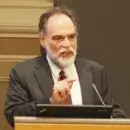
David Collier
David Collier's research focuses on political methodology, including concept analysis, qualitative methods, and strategies of multi-method investigation. His current work is concerned with the challenges of integrating case-study and medium-N analysis.
Throughout his career, Collier has also studied democracy and authoritarianism, regime transitions, labor politics, party system dynamics, and class coalitions -- focusing primarily on Latin America. The major book he coauthored with Ruth Berins Collier, Shaping the Political Arena (1991, 2002), was one of the first extended, historical analyses of critical junctures and path dependence to be published in political science. Corresponding to these substantive interests, Collier's work on concept analysis includes numerous examples from the literature on democracy, authoritarianism, and regime change.
At Berkeley, Collier has been Chair of the Political Science Department and of the Center for Latin American Studies, and he was founding Co-Director of the Berkeley-Stanford Program in Latin American Studies. He has served as President of the Comparative Politics Section of the American Political Science Association, has been a Vice President of APSA, and was the Founding President of the APSA Organized Section for Qualitative and Multi-Method Research. He has played an active role in building the Institute for Qualitative and Multi-Method Research, an international training program held annually at Syracuse University. Collier is centrally involved in training scholars in the fields of Latin American politics, comparative politics, and methodology. He won Berkeley’s campus-wide Distinguished Faculty Mentor Award, as well as the Powell Graduate Student Mentoring Award of the APSA Comparative Politics Section.
Collier has been a Guggenheim Fellow and a Fellow at the Center for Advanced Study in the Behavioral Sciences. He is an elected Fellow of the American Association for the Advancement of Science. He was awarded the 2014 Johan Skytte Prize in Political Science.